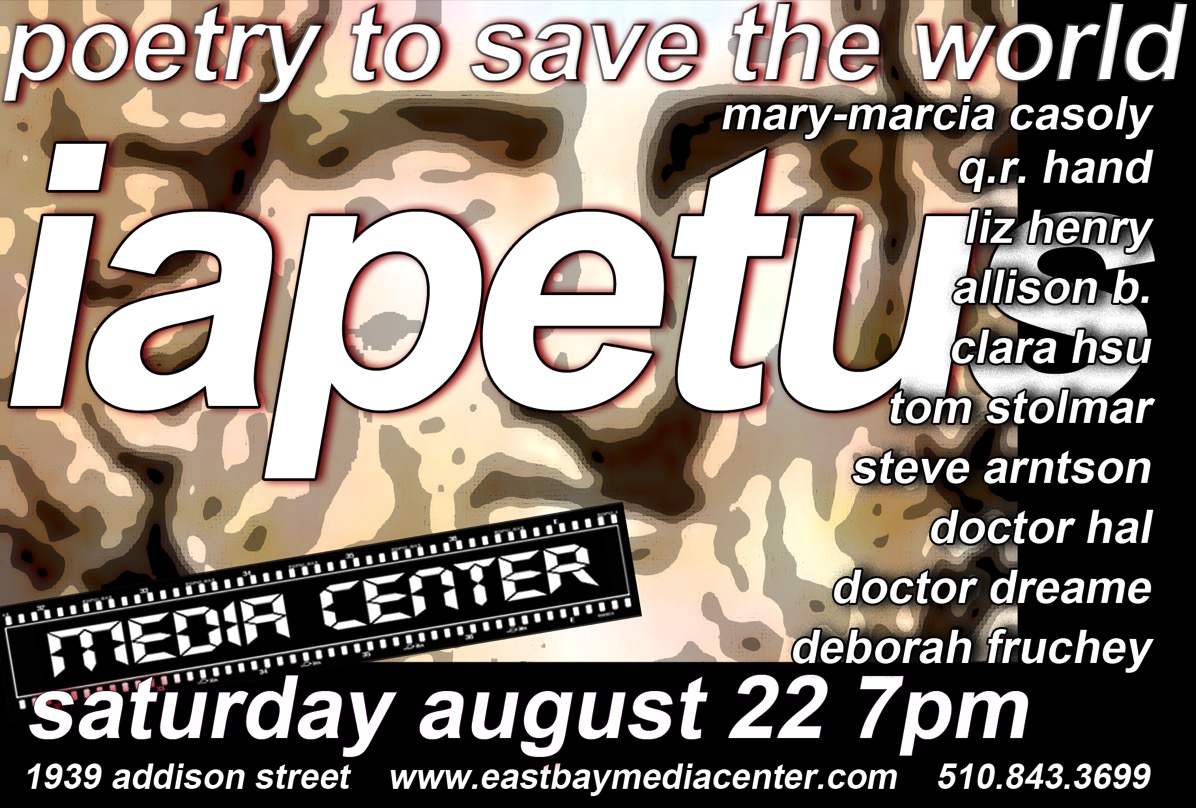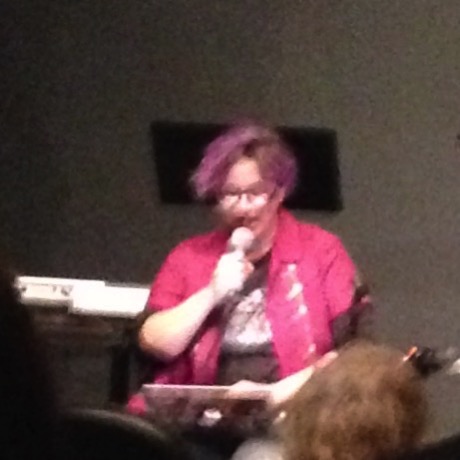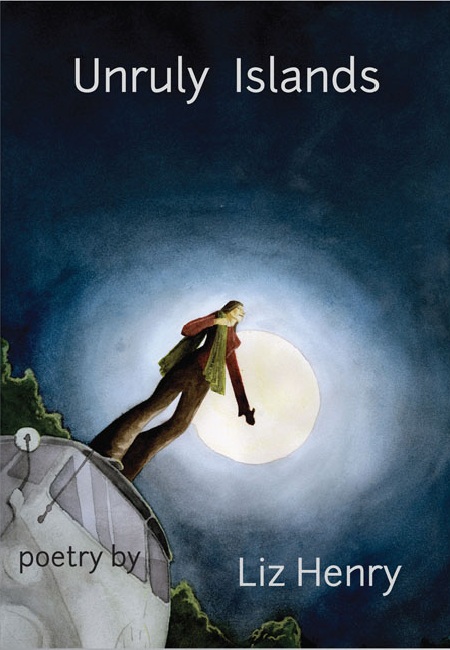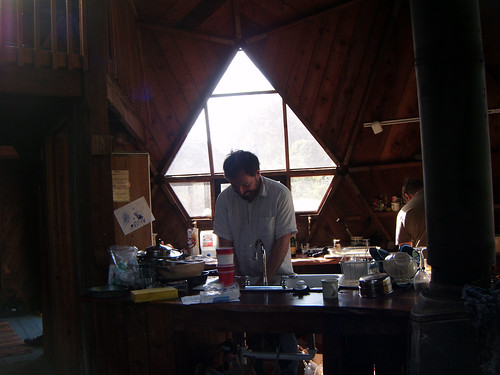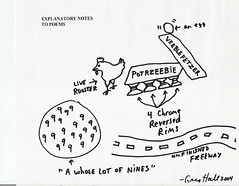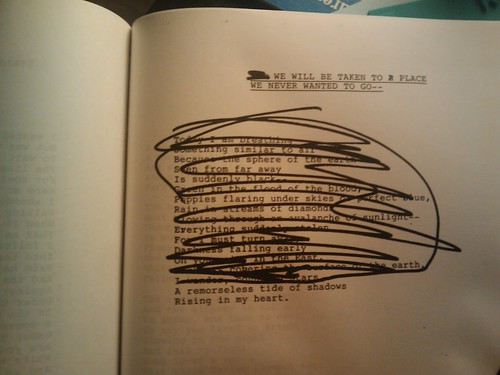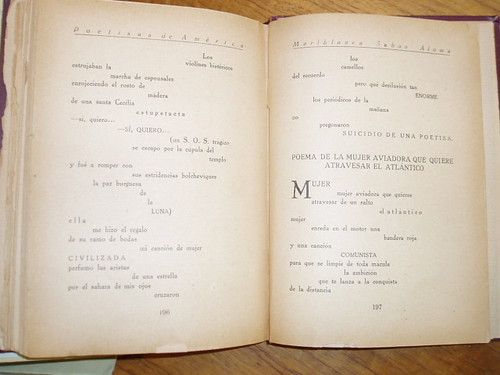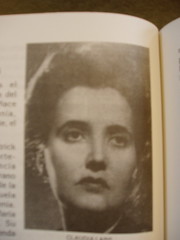DCC open mic night
First of all I am vastly sad that Alice has died. Hilarious, witty, insightful, compassionate, she was amazing to talk with. I admired her more than I know how to express for her writing and work making spaces for us all to be heard, and I will miss her and am aching for our community and all the people who were her nearest and dearest ones. My heart feels like it is just flying through space somehow in a spaceship alone as I think about her and about death and mortality.
It sounds like while Alice was living her last, the DCC open mic night that she funded from the Disability Visibility Project was happening. I wish she had not died and that she had been there. I wondered why she wasn’t there but didn’t want to bother her and didn’t know she was critically ill at that moment.
Well, I am going to just do my post and write up my notes from the wonderful community event that was a strong manifestation and celebration of disability culture. It was very clear that sparks were flying around the room and through our screens as people were excited and artistically charged up by everything we were hearing! I think that writing about others’ work from last night is a good way for me to honor Alice.
Our open mic was hosted by local luminary King Lotus Boy. There were about 40 people attending online and 20 or so in person in the space. All three of our founding leaders of the DCC, Emily, Mika, and Dagny, were there to make things go smoothly and they were fabulous hosts as always! A note, when I am not sure if people have a public presence online as a writer or artist, I will just put their first name and not link. (But if it’s you, and you want me to name you and link, let me know.)

First up was Max L. who read a delicately structured piece called “Shine”, a sort of battle of images of light shining out through holes and (abusive) people trying to plug up those holes, about ARFID and neurodivergence, the food forced on them trying to plug the light burning through their mouth. The complex web of these images worked so perfectly as they kept building and circling to convey the complex experiences of being beleagured and suffering, while being so powerful and fierce inside, and coming to be able to live & shine in that power. I am not sure how this poem looks on the page but I was thinking of it as a prose poem – a difficult form to sustain and Max pulled it off.
Leche read a beautiful poem of houses falling apart, houses with no safety net, of longing for complex webs of care and love, passion and comfort, basically, a queer artist polycule. I wish my notes were better on this one, but I was vibing. Hell yeah!
Fern was on the signup, but didn’t make it. I hope to hear from Fern next time!
Avra showed up for us reading two poems that kind of snuck up on me as they started off feeling a bit prosaic, built up momentum steadily, and then hulked up to pack a punch. The first one started off with cornfields and maybe moving cities and I got the impression of a family and then it kind of became about being refugees and it was carefully not delineating exactly what from, but I certainly thought of the trans migrations I am watching my friends go through now. “We need to believe there’s less evil here.” That was a great line that made my nostrils flare.
Avra’s second poem called Walk This Way hit me the same way as it was a description of her walking with her granddaughter and noting her toe-walking and then going back to her own grandmother who I think raised her, and criticized her, then talking about her own experiences of ambulation class (at which I had to give a little beatnik snap of recognition… how many times I have had to do gait training PT over the years!) This wound up to the start of that amazing punch I mentioned — The poem talked about the criticisms she (the narrator of the poem) faced of her own disabled gait as a child. (“These days, grandmas know to keep that shit to themselves”) And we returned to the talking books she listened to at her grandmother’s knee and how those talking books made her a poet. It worked as a story, it worked as musing across generations, and it got across that disability culture exists — that we “do” cultural transmission across generations, that it’s a living thing that we can decide to change, like Avra (or the narrator of the poem if it isn’t plainly autobiographical) decides not to be a bitch to her granddaughter. These were poems that were often plain talking — as you can see in the lines i noted and quote here — in a way that worked well as poetry, and that stick in my mind.
Masha Aleskovski then got up to the mic. She talked a bit about TBI and hemiplegia and then sang two poems – her own songs and her composition. Her ethereal voice echoing through the cultural center and the atrium, about moonlight, trees, spirit – just incredible. I need to go into all caps because THERE WAS ALSO MEOWING IN ONE SONG. The meowing and howls and inchoate calls to the sky worked so well done with her gorgeous voice. (clear to me, classically trained) Everyone was so blown away listening to this spiritual night fairy taking us to the fucking stars!!!
Alex, from online, then sang us a very sweet folk song with ukelele (or was it a guitar? my memory fails) The song was called “If the world was ending” by Julia Michaels. There was a big round of applause for this touching song!
Nicole B. then read a scene from her novel, Creating Love, which is about a woman who is a wheelchair user and creates an embodied AI, maybe a cyborg, I think to be her lover. In the scene we heard, our narrator was about to take Edmund on a flight, and was coming up to the TSA checkpoint deeply worried that they would catch that Edmund’s ID was faked. This might traumatize Edmund badly! The TSA agents start to question Edmund. The narrator realizes she needs a distraction quickly.
At that point I started to laugh hard because it was clear what was about to happen!! The narrator cripped out fully , acting confused and loud about how she could not stand up for the xray and demanding to know what was going to happen and then I think also started dropping things and spasming. (I can’t remember, because I was giggling so hard.) The TSA agents assume that Edmund is the airport attendant wheeling her to her gate (despite him having a boarding pass!) Edmund then gets offended and says “I’m not her attendant, she’s my girlfriend!” While the narrator has a lot of emotions about this since he never called her that before, and the TSA agents die of guilt for assuming things.
It is very hard to pick a scene from a novel and read a short excerpt to a crowd and have it both make sense, and not be boring as fuck, and I know this because I have been to a shit ton of literary readings. This reading was perfect – clear, entertaining, and enticing. Nicole is one to watch here, because this novel is fire. The room burst into applause and everyone started demanding where can they buy this book. We all felt deeply invested in what happens next and what in the world happened before as well. The novel is finished, but not yet published as Nicole is just starting to talk with agents.
TextaQueen then read us two poems and kindly posted their full text in the chat as well. The first poem, return, describes a cameraderie from behind glass. Maybe a hospital stay, maybe a train trip, maybe a space ship, – maybe just commuting to work in a weird metal box hurtling forward at 60 miles an hour — it is left beautifully ambiguous. Though I saw most clearly, being home, with chronic illness and in protection from illness, the extra isolation that came to us with COVID. The glass of screens and the cameraderie of the chat, the longing and loneliness.
group chat alert vibrates
somewhere under blankets pets pills
phone as hard to find as spoons
our connection untied to consistency
we send each other ease we wish to feel
our choirs meet on screens
wormholes to let us warble
there is no path to light
no A to B to Z
This poem worked well aloud and holds up well on the page as well. I love a densely packed poem that fucks with language and structure! And yes — take us to space, please. The loneliness and isolation that is part of a lot of disabled people’s experience, taking us to a deep human longing for space travel, freedom, and the hope alien contact, crops up a LOT.
Texta’s second poem explored everyday experience (drinking some boba tea, looking at a flower, going to work) but the boba is like, deeply weird as a physical experience and the flower is like, a sort of crawly robot bug and goes on the bus with her to work and crawls inside other people’s brains. Texta is a virtuoso at getting embodiment and emotion and particular vision — a visionary – into the poem.
my clever friend returns to me
sits up on my shoulder
reporting its research
whispers clicks and whistles
slides back inside my shirtif only i understood its language
Justin Archuleta then read a poem that was structured like a quiz, a multiple choice quiz of him quizzing himself and speculating about in what ways his disfluent speech or stuttering is impairing and how it is or isn’t disabling or being disabled. His exploration was deeply thoughtful, viscerally described, I could almost taste the dry glass and panic, the unpredictability, and appreciated his soul searching. You can read this poem online “Is Your Stuttering a Disability” in Carte Blanche magazine.
Deidre then performed / told an ASL vision-story. She mentioned Adrienne Maree Brown in connection with this story but I didn’t catch how she was involved and I think the story was by Deidre. It describes the year 2050, the smoke and crisis, but then bounces to a 2050 with clear skies, beautiful trees, seeds in the ground, picking a cherry and popping it in her mouth, a child asking her, how did you survive the hottest years on record back in 2025? Graceful and expressive, she painted this future world we could have, so close, almost within our reach, and I felt deep sadness at the state of the world but also hope that we can work and fight for our visions of a better future.
Ayelet sang a song, about the ocean, unmasking, hiding and then “coming out”, the awareness of developing trust, looking deeply into others with understanding and wanting to know more about a person. It was a love song of neurodivergence and queerness!
I’ve lived my whole life
Hiding the signs
Hiding my light
Until my voice takes flight
Then I’m alive
Then I’m alight
But somehow in the silence you and I
I read two poems, one my poem to Mel Chua and all of the community around her in her last year or so, online and in person. I miss Mel very much. She is on my ofrenda with Beth, Eno, Stacey, and so many others. I also read a new poem called Wry Crips (which is a call out to Patti Overland) but isn’t about her, it’s more about that experience when you meet another disabled person’s eyes and share a look or a nod and you feel seen and feel in community.
A bit from my poem to Mel, “To put it in context”
as you move
to a beat
unhooked
from the sun
the lines of juice
& power
trace that
space ship
harness
to your body-pilot
cockpit,limit
& cradle,
sustained
and fed
the fierce
light in your
hands
that roll out
in manifesto
cadence – as
in the club
a dancercaught
by other dancers’
arms, flexible
listeners
staunch
as redwoods
check
the screens’
sight lines,
I cannot help but think of Alice reading these lines and I hope she was surrounded by love and had a peaceful exit. As Mel did.
Ash was our last performer with storytelling and comedy, talking about unhinged things they have said. (I actually missed a bunch of this – I had to pee – sorry!)
There were more people on the list but we had to wrap up the event.
Themes running through much of the work I heard last night — lots of embodiment, complexity, longing, love, and compassion — those science fiction themes coming through SO strongly – and centrally, how can we communicate our perspectives and experiences across a distance that can be so alienating. We have stories and novels and fiction to convey inner lives and complex experiences, we have poetry and song to anchor our emotions and thoughts from embodiment to language – And we turn strongly to speculative elements, surreal, fantastic, or science fictiony threads to push out the ways that things do not (have to) make SENSE or the ways we are alienated and alien (or that others are, from us). I think of the ways we experience dehumanization for example in that TSA line or in encountering any institutional setting, and how disconcerting it is, how hard to convey. Putting your cyborg/AI frankenstein lover into the TSA line with you really hammers it home. It means a non disabled reader can catch a glimpse of that experience and ways that we have to cope. Including a dry and bitter humor and sense of the absurd, that I always appreciate seeing in others.
This was a long post but I wanted to honor all the performers and people who showed up last night as I think of Alice and my other friends. Thinking of Alice writng and talking about her own death (https://time.com/6960765/alice-wong-muscular-dystrophy-essay/). I am thinking of Freddie Baer who just died this week and the work we will do to preserve and honor her work as well. I remember going to work on Alice’s very early Wikipedia article in 2016? 2018? and fixing it up with whatever I could find. It is so important for us to document our work and existence. Love you all. Over and out!
